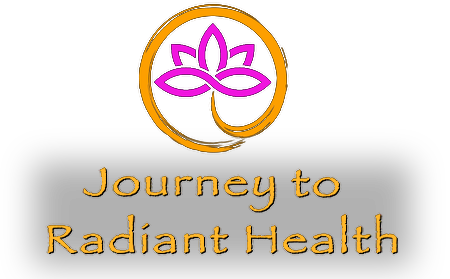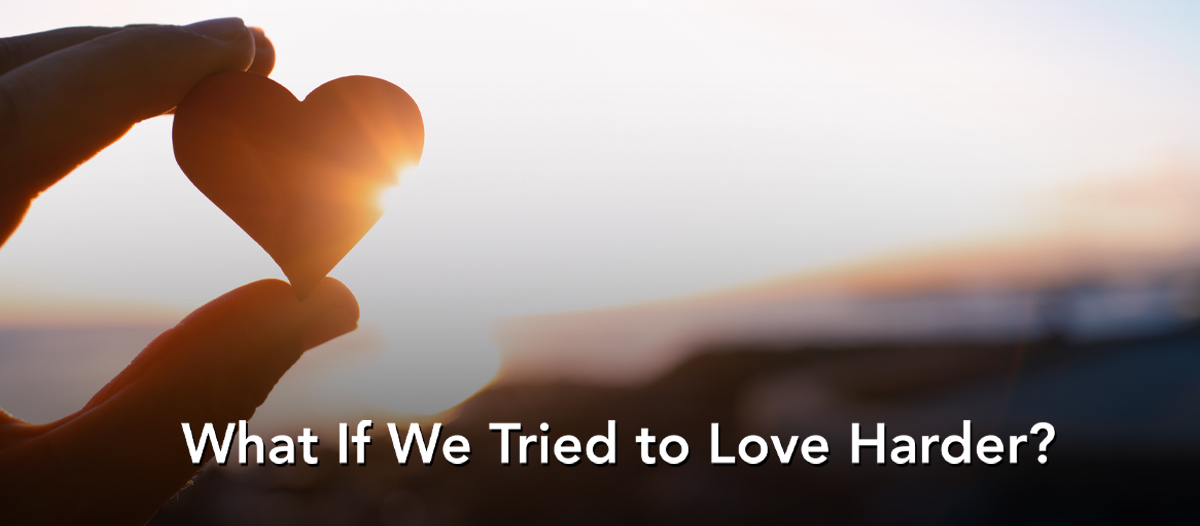What If We Tried to Love Harder?
by Mark J Kaylor
A Healing Reflection from the Heart of the Journey to Radiant Health
“Love is the bridge between you and everything.”
~ Rumi
What if the medicine we most needed was not something to be extracted, purchased, or prescribed—but something already within us, waiting patiently to be remembered?
What if we tried to love harder?
Not in the performative way we sometimes confuse with love—not the saccharine positivity or the transactional kind—but the deeper, truer kind. The love that stays. That listens. That holds space. That heals.
This isn’t a question about romance or sentimentality. It’s a call. A quiet revolution. A return. A remembering of who we are beneath the noise, beneath the fear.
Love as Medicine: A Personal Journey Toward Wholeness
To love harder is to risk. To soften where we have armored. To show up when we would rather retreat. To meet our own wounded places with gentleness instead of judgment.
We talk a lot in wellness circles about healing, but healing is not the same as fixing. Healing is reuniting what has been scattered, reclaiming what has been shamed, welcoming home the exiled parts of ourselves. It is a movement toward wholeness.
And love is the current that moves us there.
Loving harder begins within. It invites us to extend grace to the inner critic, to the child within who still flinches at rejection, to the aging body that can no longer keep up with old expectations. To love harder means to stop waging war on the self.
What if you loved the anxious part instead of trying to suppress it? What if you held your sadness instead of running from it? What if the way out wasn’t up or over, but through — and the vehicle was love?
Self-love isn’t a trend or a spa day. It’s a spiritual stance. A willingness to sit beside yourself in the dark without rushing to turn on the light. It’s saying, “You are worthy now. Not when you are perfect. Now.”
That kind of love shifts the body. Calms the nervous system. Regulates breath. Invites rest. It changes the way we speak, eat, move, and even breathe. That kind of love is biology, not just philosophy. It is chemistry. It is energy. It is soul.
It is healing in its purest form.
Societal Healing: What If Our Systems Loved Harder?
Zoom out. Ask the same question:
What if our schools loved harder? Would they measure potential by test scores, or by curiosity and compassion?
What if our healthcare system loved harder? Would it treat patients as data points, or as full human beings with stories, fears, and dreams?
What if we legislated with love? Educated with love? Built communities with love? What would change if empathy sat at the head of the table?
To love harder as a society would mean interrupting the systems of separation. It would mean seeing homelessness not as a statistic, but as a failure to care. It would mean addressing poverty not only as an economic issue but as a moral one. It would mean seeing prisons as wounds, not warehouses.
Love, in its truest form, disrupts injustice. It does not look away. It rehumanizes where systems have dehumanized. It calls us to remember that every policy, every system, every structure affects real, living hearts.
To love harder as a society would mean centering people over profit. It would mean embracing restorative justice over punishment. Nourishment over convenience. Relationship over transaction.
It would mean slowing down enough to ask not just “What is efficient?” but “What is kind?”
These are not soft ideas. They are fierce. Radical. Foundational. They are the soil in which a livable, breathable, luminous future could take root.
What It Takes to Love Harder
To love harder is to:
- Slow down, so presence can enter. Rushing numbs the heart. Slowness creates the space where we can actually feel, hear, and connect.
- Listen deeply, especially when it’s inconvenient. Not just to words, but to the meaning beneath them. Deep listening is love in action.
- Speak truthfully, even when your voice shakes. Real love is not passive—it speaks. With care. With integrity. With heart.
- Forgive, not to excuse harm, but to end cycles of suffering. Forgiveness liberates. It doesn’t condone; it sets us free.
- Stay, when your instinct is to bolt. In a world addicted to escape, love stays present. It says, “I’m here.”
- Include, when exclusion would be easier. Love expands the circle. It welcomes the misunderstood, the different, the uncomfortable.
- Let go, when control masks fear. Sometimes loving harder means releasing, not holding tighter. It means trusting the flow.
- Feel, even when the feelings are messy. Love doesn’t bypass emotion—it befriends it. Tears are sacred. Anger can be alchemized. Grief is proof of care.
To love harder is not to avoid conflict, but to move through it with intention and care. It means holding paradox: strength and tenderness, boundary and openness, vulnerability and discernment.
It also means honoring boundaries. Real love does not collapse into appeasement. It stands. It says, “No more harm.” Loving harder includes protecting what is sacred—including your own peace.
This kind of love is an art. A practice. A path. It takes courage. It takes patience. It takes community. And it begins not with trying to be more loving out there, but with how we love right here — in our thoughts, our relationships, our choices, our rhythms.
The Results We Might Not Expect
If we tried to love harder, we might:
- Become more resilient, not because life is easier, but because we are more rooted. Love grounds us. It gives us something to return to.
- Experience more belonging, not because everyone agrees, but because we hold space for difference. Love honors diversity without demanding sameness.
- Heal ancestral and generational wounds not through blame, but through presence and repair. When we meet pain with love, the cycle begins to dissolve.
- Create slower, saner, more soulful lives where depth matters more than performance. Love reminds us to value meaning over metrics.
- Build communities that feel like home, not battlegrounds. When love leads, competition gives way to connection.
- Experience aging as deepening, not decline. Love sees time as ripening, not fading.
- See that health is not only the absence of disease, but the presence of love. Love becomes the vital sign, the pulse of aliveness.
These aren’t abstract ideals. They are reachable. Tangible. They begin wherever you are, with whatever breath you have now.
What Might Get in the Way: Barriers to Loving Harder
If loving harder is so essential, why don’t we all do it naturally?
Because love demands vulnerability. And vulnerability has been painted as weakness in a world that prizes control.
Some common barriers:
- Fear of being hurt again. So we armor. We withdraw. We hold back.
- Cultural conditioning that defines love as romance, codependence, or weakness.
- Busyness. A relentless pace of life that leaves no room for tending.
- Trauma. Old wounds that taught us love wasn’t safe or dependable.
- Disconnection. From our own hearts. From nature. From meaning. From one another.
Recognizing these barriers is itself an act of love. Not to judge, but to gently shine light. When we see what blocks love, we can begin to soften it.
The antidote is not more force. It is awareness. Compassion. Practice. One breath at a time.
A Poetic Reflection for the Journey
Love is not a task on your list.
It is the way you speak to yourself in the quiet.
It is the pause before the judgment.
The breath before the reaction.
It is the return
again and again
to wholeness.
What if we tried to love harder?
Not for show.
Not for reward.
But because love is the thread
that mends the fabric
of everything.
A Radiant Invitation
On your path to radiant health, let love be more than a feeling. Let it be a practice. A presence. A power.
This week, try loving harder:
- One deeper breath.
- One softer word.
- One act of brave empathy.
- One moment of stillness with your own heart.
- One reach across a divide.
Not because it will change the world overnight, but because it might change you. And in changing you, a new world becomes possible.
And when you begin to live from love—not perform it, but embody it—you shift the resonance of your life. The circles you move in begin to shift. Conversations change. Small ripples of healing fan outward.
You become a mirror for what is possible. A keeper of the flame. A reminder that love is not a luxury—it is the infrastructure of aliveness.
So let this not be a resolution but a return.
To your breath. To your heart. To each other.
And maybe, just maybe, that’s where healing begins.
From the heart of the Journey to Radiant Health, may you walk in love, breathe in peace, and return to the wholeness that has always been yours.
Mark J. Kaylor is a passionate advocate for holistic health and natural remedies, with a focus on extending both lifespan and healthspan. As the founder of the Radiant Health Project and host of Radiant Health Podcast, Mark blends in-depth research with traditional wisdom to empower others on their journey to vibrant health. Through his writing and speaking, he shares insights into the transformative power of herbs, nutrition, and lifestyle practices.
Disclaimer: All information and results stated here is for educational and entertainment purposes only. The information mentioned here is not specific medical advice for any individual and is not intended to be used for self-diagnosis or treatment. This content should not substitute medical advice from a health professional. Always consult your health practitioner regarding any health or medical conditions.









Leave A Comment